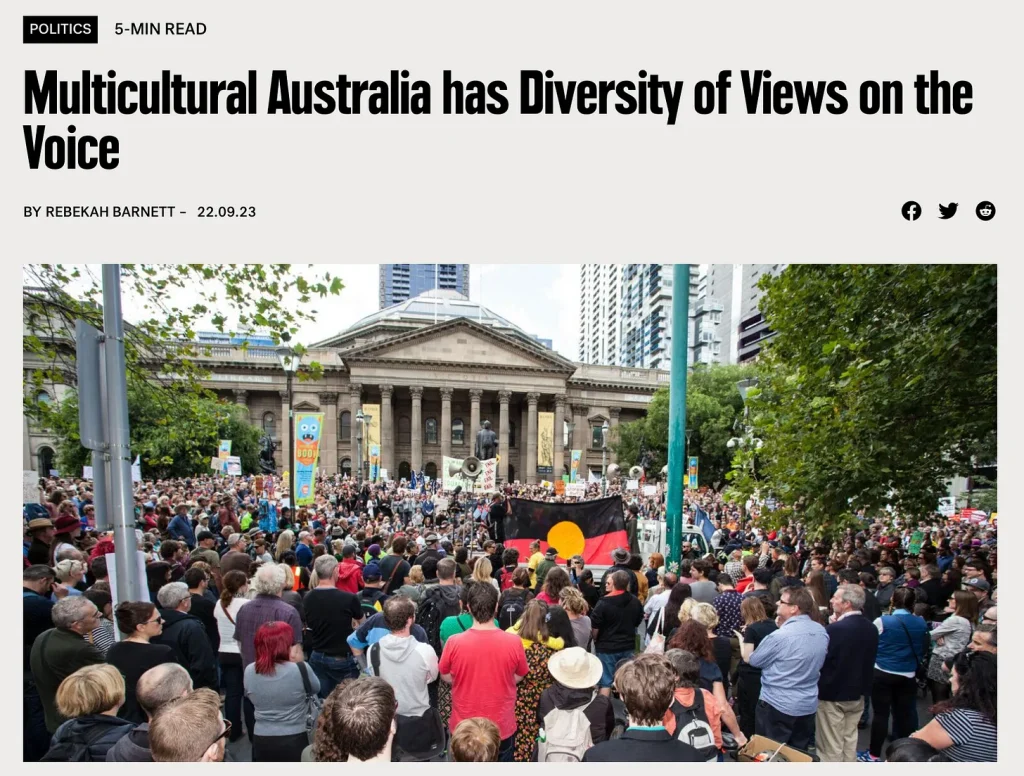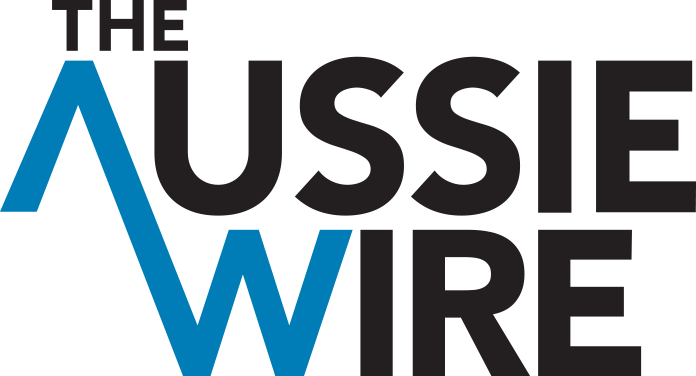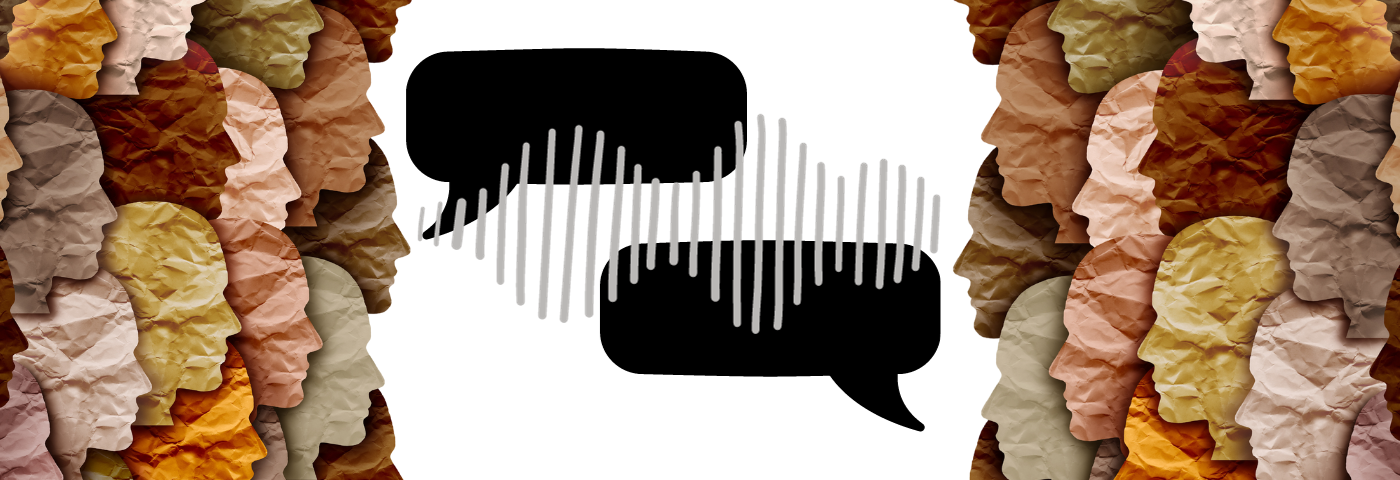The following post about the 2023 Voice Referendum is syndicated from Rebekah Barnett
True to its international reputation, Australia is an incredibly culturally diverse country. Around a third of the resident population was born outside of Australia (29.1 per cent), and just under half have a parent born overseas (48.2 per cent), according the most recent census (2021). In the last financial year alone, nearly 200,000 immigrants became Australian citizens, representing hundreds of different nationalities.
So when voters go to the polls for the Indigenous Voice to Parliament referendum in a few weeks, a good many will be first or second generation Australians, meaning either they or their parents were born overseas.
How then, does this cohort of ‘new’ Australians relate to the public conversation around the Voice? I asked several first and second generation Australians for my new article for Umbrella News, and their responses were as diverse as their cultural heritage.
Read: Multicultural Australia has diversity of views on the Voice

The Voice to Parliament referendum will propose an alteration to the constitution to recognise Aboriginal and Torres Strait Islanders as the First Peoples of Australia by establishing an independent advisory body to Parliament and Government, called the Voice. For the referendum to pass, a majority of people in a majority of states need to vote yes.
It’s a big deal here in Australia at the moment. It’s taking up a lot of oxygen in the daily news cycle, and it has sparked all manner of public debate – some productive, but much of it quite nasty.
Online, the mood is intensely partisan and hyperbolic.
‘If you believe in Aboriginal rights, you’re voting Yes’
‘All thinking people will vote No’
‘No arguments are based on lies’
‘The Yes campaign is vapid and woke’
With this article, I wanted to showcase a snippet of the complex and nuanced ways that people are coming at this issue, on both sides and in the middle.
In the conversations I’ve had in person and online, I have found that most people want what’s best for Indigenous Australians, and for all Australians. But we have such different ideas about how to achieve these ideals! My favourite question to ask people is, why do you think that? Often, I learn something new about the person I’m talking with, and maybe about the world too.
This article is about the Voice referendum, but more than that, it’s a prompt to think about how we do conversations across ideological and political aisles.
I hope this article might encourage a more thoughtful, respectful and open discourse and especially, good listening.
Read: Multicultural Australia has diversity of views on the Voice
You can read more of Rebekah Barnett’s blogs onsite here.

